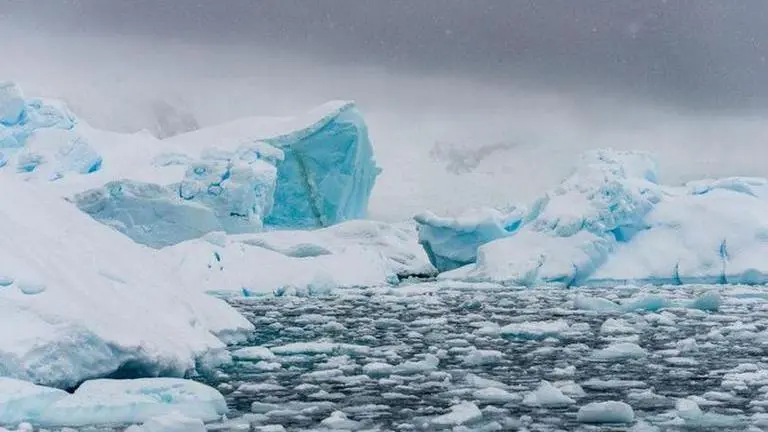Updated 21 September 2020 at 14:42 IST
Ice sheets meltwater could contribute 15 inches to global sea level rise: Study
Emission of greenhouse gasses leading to melting of ice sheets could add at least 15 inches to global sea-level rise by 2100, a recent study led by NASA said.
- Science News
- 2 min read

Emission of greenhouse gasses leading to melting of ice sheets could add at least 15 inches to global sea-level rise by 2100, a recent study led by NASA revealed. The study published in the Journal The Cryosphere stated that if greenhouse emissions continue, the resulted warming could lead to considerable melting of Greenland and Antarctica’s ice sheets. Together, they both could contribute more than 38 centimetres to global sea-level rise by 2100, the study added.
According to NASA, the findings are in line with projections in the Intergovernmental Panel on Climate Change (IPCC) 2019 Special Report on Oceans and the Cryosphere or portions of Earth’s surface where water is in solid form. The IPCC report, which was released recently, stated that Greenland could alone contribute to 8 to 27 cm to global sea-level rise between 2000-2100. On the other hand, Antarctica could contribute 3 to 28 cm.
Advertisement
High level emission
For the study, the researchers investigated two different scenarios the IPCC has set for the future climate to predict sea-level rise between 2015 and 2100: one with carbon emissions increasing rapidly and another with lower emissions. As a result, they found that the loss from the ice sheet would raise global sea level by about 1.3 inches (3 cm) in the low emission scenario but, in High emission level scenario, the Greenland ice sheet would additionally lead to global sea-level rise of about 3.5 inches (9 cm) by 2100. All the conclusions were deduced from the Ice Sheet Model Intercomparison Project (ISMIP6) led by NASA’s Goddard Space Flight Center.
Currently, meltwater from ice sheets contributed to a third of total global sea-level rise. But the researchers warned that with warming air temperatures melting the surface of the ice sheet, and warming ocean temperatures causing ocean-terminating glaciers to retreat, Greenland’s ice sheet has become a significant contributor to sea-level rise.
Advertisement
Representative image/ Pixabay
Published By : Riya Baibhawi
Published On: 21 September 2020 at 14:42 IST
